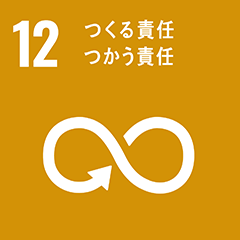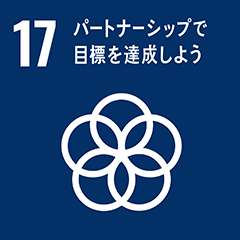Inochi Declaration
Zero Waste Will Save the Earth. Let’s build a sustainable system for protecting Inochi. To achieve this, empathy as global citizens is indispensable. Success in reducing everyday waste provides powerful insights for global sustainability.
The Paris Agreement, adopted in 2015, set a target to “pursue efforts to limit the temperature increase to 1.5°C” in order to protect the Earth’s ecosystems. However, at COP28, held last year, it was reported that there remains a significant gap between current progress and this goal. Can the 1.5°C target truly be achieved?
One particularly striking graph sheds light on this question. This graph, showing the trend in municipal waste in Osaka City, illustrates two key developments:
1.Following World War II, shifts in lifestyle toward mass consumption and disposal led to a fivefold increase in waste—from 400,000 tons in 1955 to 2.2 million tons in 1991.
2.Since that peak, however, waste has been reduced by 60%, reaching approximately 900,000 tons today.
Prior to the era of rapid economic growth, people in Japan lived in resource-circulating ways—for instance, food leftovers were repurposed as livestock feed, and tofu was purchased using reusable pots. The dramatic decline in waste volume demonstrates that it can be done. The number of incineration plants in Osaka decreased from 10 to 6, resulting in cumulative savings of over 150 billion yen. This stands as a prime example of harmonizing environmental and economic goals.
What made this reduction possible? The answer lies in waste separation, and more importantly, the empathy cultivated within local communities that enabled such behavior.
Two initiatives exemplify this:
● Community Collection of Used Paper and Clothing
● PET Bottle Recycling Project Connecting Everyone
In these programs, residents go the extra mile—removing labels and washing bottles—to transform used paper and PET bottles into valuable resources. The rewards are then reinvested in local welfare efforts, such as supporting isolated elderly individuals or providing meals at community cafés for children. These daily actions, undertaken with empathy and ownership, exemplify the integrated vision of environmental, economic, and social sustainability pursued by the SDGs. Similarly, the plastic bag fee introduced in 2020 gained public acceptance due to widespread empathy— sparked by images of sea turtles and seabirds harmed by plastic waste—encouraging more people to carry eco-bags. Such successes inspire hope for zero waste and meeting the 1.5°C goal.
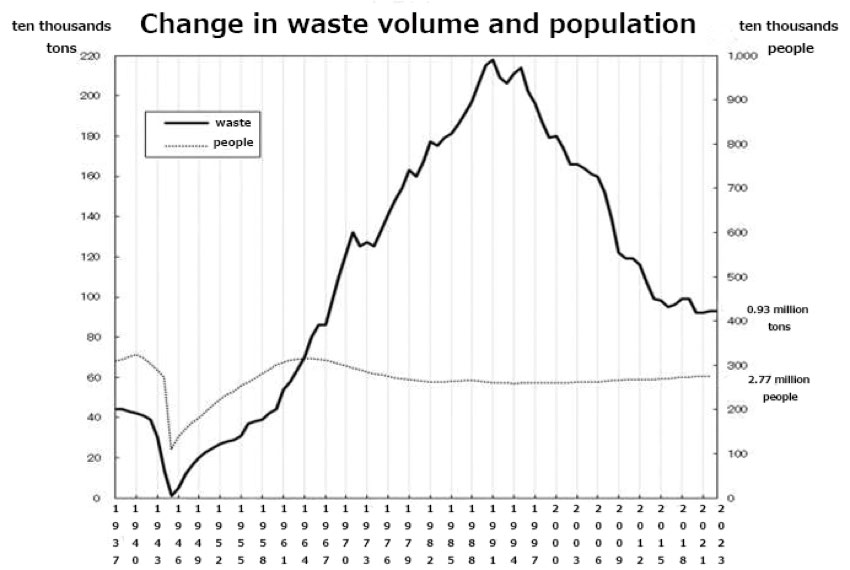
Source: “FY2023 Osaka City Environmental Bureau Project Overview” Chapter 4,
Section 2: Municipal Waste Management
Exclusive Identity
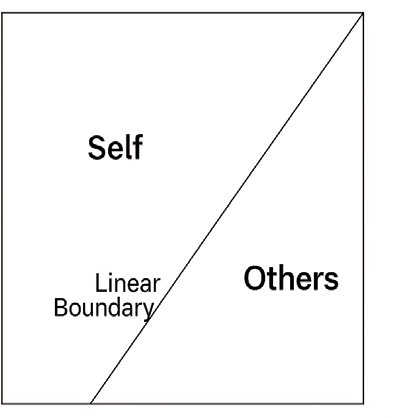
Empathetic Identity
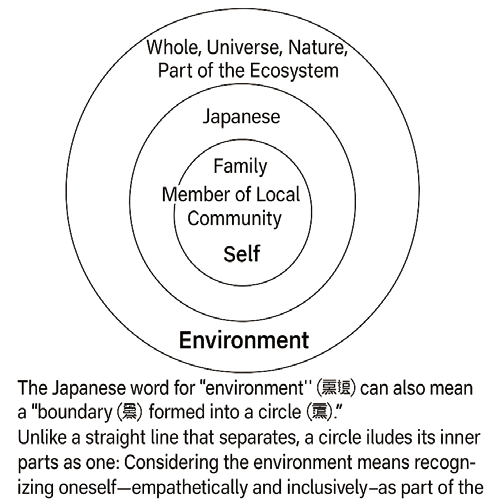
Top panel: Image of Exclusive. Bottom panel: Empathetic Identity
Addressing environmental issues requires systems that internalize externalities, making environmentally friendly actions also financially beneficial to individuals and businesses. For example, in cases of industrial pollution, polluting companies compensate victims, even outside of market mechanisms. Yet global issues like climate change and plastic pollution make everyone both a victim and a perpetrator. Rulemaking and internalization frameworks, driven through COP and other mechanisms, are being developed globally. Empathy for the Inochi of others—including nature—is essential to shaping such rules and policies.
The word “environment”(環境)in Japanese can also mean a “boundary(境)formed into a circle(環).” Unlike a straight line that separates, a circle includes its inner parts as one. This metaphor suggests that each of us is simultaneously a member of a family, a citizen of a nation, a global citizen, and a part of the interconnected web of Inochi. Our identity expands outward like concentric circles.
Humanity’s relentless pursuit of material progress, through technological innovation, has raised living standards—but it also threatens ecosystems and long-term sustainability. Climate change is one manifestation of this danger. Overcoming this crisis requires each individual to restrain narrow egoism and act in solidarity with others as global citizens, grounded in empathy.
The Global Environmental Centre Foundation (GEC), a partner of the Inochi Forum, operates with the mission of fostering global collaboration on environmental issues. With networks spanning the United Nations, governments, local authorities, universities, and businesses, GEC works to realize a circular and sustainable society by 2050.
In collaboration with GEC and other organizations, the Inochi Forum promotes awareness and nurtures empathy by sharing pioneering domestic initiatives on zero waste and carbon neutrality each year. We also create spaces for engagement with stakeholders from developing countries to share Japan’s knowledge and case studies, thus contributing to global action.
[Notes]
*1 City of Osaka: Community Recycling Program
https://www.city.osaka.lg.jp/kankyo/page/0000288460.html
*2 City of Osaka: Circular PET Bottle Project
https://www.city.osaka.lg.jp/kankyo/page/0000480794.html
[References]
・Community Collection of Used Paper and Clothing
https://www.city.osaka.lg.jp/kankyo/page/0000288460.html
・PET Bottle Recycling Project Connecting Everyone
https://www.city.osaka.lg.jp/kankyo/page/0000480794.html
・Global Environmental Centre Foundation (GEC)
https://gec.jp/jp/
[Action Platform]
Energy and Climate Change / Resource Recycling
[SDGs]
